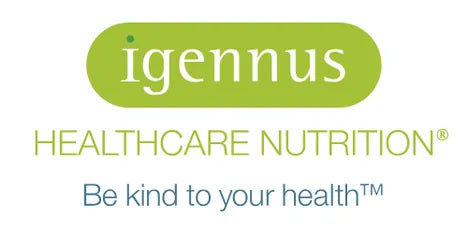With around 7 million people in the UK diagnosed with cardiovascular disease (CVD), leading to 26% of all deaths in the UK each year, should we be educating ourselves on how better to protect our heart health from such dramatic risks? Whilst men were considered to be more likely to suffer with CVD, the latest statistics suggest that half of all those diagnosed with CVD in the UK are now women, with twice as many women dying of coronary heart disease (the most common form of CVD) each year as breast cancer.
The heart is the core of our health
The heart does an impressive job of pumping 7000 litres of blood every day, transporting nutrients and oxygen to cells and, equally, transporting waste from the cells to prepare for its excretion, as well as supporting temperature control. Not only is this important to help cells work, considered on a larger scale, it is also supporting the health of many key bodily functions, including brain function, muscle function, digestion, immune health, and so on. So heart health means so much more than supporting the health of your heart, blood and vessels – it truly plays a key role in supporting overall health. Yet, heart health is often taken for granted until we experience symptoms of poor health or the doctor tells us that we have high cholesterol or triglycerides. Complications start long before we become aware of physical symptoms, but fortunately there are strong reliable markers that functional tests can reveal about the state of our heart health, along with nutrition and lifestyle factors proven to improve our heart health and reduce risk of CVD.
Functional testing – simple detective work for underlying risks
Your GP is able to conduct diagnostic tests such as cholesterol levels, triglyceride levels and C-reactive protein, all of which are markers for CVD. Functional tests, however, give you the opportunity to be the master of your own health, to search for possible nutritional imbalances that may be occurring within your body and which may increase your risk for ill health, long before actual ill health occurs. If an imbalance is detected, this can often be re-tested after a period of therapeutic support to ensure the marker falls back into a healthy range. There are 2 functional tests that are key when considering heart health:
1. Omega-3 index
While you might not automatically think of omega-3 levels when you consider heart health, testing your Omega-3 Index (the % of EPA and DHA out of total fat in your red blood cells) is now widely accepted within the scientific community as a biomarker of cardiovascular disease risk, and is significantly more robust than C-reactive protein, cholesterol, triglycerides, or homocysteine levels as a biomarker. There are many reasons for this. Firstly, omega-3 fatty acids help to keep cell membranes fluid, thus reducing cholesterol content; they are also cardio-protective, lipid-balancing, and possess anti-inflammatory properties, with chronic inflammation increasing risk for heart disease. Therefore, testing your Omega-3 Index is a good way to determine your risk, with a status of 8+% seen as optimal, and easy to achieve with dietary and supplement changes. Studies suggest that increasing your Omega-3 Index from 6.1% to 8.3% could reduce the risk of dying from a fatal heart attack by around 15% and that by raising it from 4.2% to 8.3% could reduce this risk by a staggering 30%. Furthermore, a high Omega-3 Index is associated with a lower risk for total CVD events, total strokes and was found to be a more accurate predictor of CVD than serum cholesterol, which has for many years been viewed as a ‘gold standard’ risk factor for predicting heart disease.
2. Homocysteine levels
Homocysteine is a toxic byproduct of liver detoxification, with higher levels causing abnormal electrical activity, and being a risk factor for heart disease. To better support homocysteine metabolism, and thus reduce elevated levels, the body requires key nutrients including vitamin B12, vitamin B6 and folate, all in the methylated easy-to-absorb form, and available in a methylated vitamin B-complex for convenience.
Heart-healthy nutrition
Facts about fat
It can become confusing when considering the role of the diet in supporting cardiovascular health and, fortunately, gone are the days when all fats are considered equal and bad for health. Whilst fats produce cholesterol, it is important to note that cholesterol is indeed important to health, required for the production of hormones and vitamin D and in supporting cell membranes. You therefore need fat in the diet; just ensure you stick to healthier sources such as nuts and seeds, avocado, olive oil, coconut oil, eggs and, of course, oily fish (tuna is no longer classed as an oily fish). The important fats to consider here are omega-3-rich foods which include oily fish (mackerel, anchovies, salmon, herring and sardines), walnuts, flaxseeds and chia seeds. Oily fish are the only source of beneficial long-chain omega-3 fatty acids EPA and DHA; unfortunately, studies do suggest that those who are sticking to the government guidelines and consuming one portion of oily fish per week are now obtaining 50% less EPA and DHA per portion than they were in 2006, due to the increased use of rapeseed oil in aquafeed as a cheaper alternative to fish oil. Whilst consuming two portions per week will support the government’s recommended daily intake of 450mg EPA & DHA, this is not advised due to the likely presence of heavy metals in the fish. Furthermore, it is estimated that a person would need to maintain an intake of 1-2g EPA and DHA daily to raise levels from sub-optimal to optimal and to preserve healthy levels of omega-3. Considerably more than the government guidelines, this equates to a portion of fish every day. A safer and more efficient way of obtaining and maintaining an optimal Omega-3 Index is with the use of pure, concentrated and easy to digest fish oil, with accurate dosing obtained from testing your Omega-3 Index. Supplementing with omega-3 fats has also been shown to have a beneficial effect on cholesterol levels by decreasing triglycerides and LDL (bad cholesterol – travels from the liver to the body), but increasing HDL (good cholesterol – transports cholesterol from the body back to the liver ready for excretion). You should, however, reduce your intake of trans fats, from foods such as margarine and processed foods which are likely to contain margarine, including cakes, biscuits and pies, as well as saturated fat which is contained within processed and fatty meats. If these foods regularly occur in your diet (i.e. daily), consider healthier alternatives and limit your intake to once per week, whilst also increasing your intake of cholesterol-clearing soluble fibre from oats, wholegrains, beans, bananas, berries and apples.
Boost antioxidants to protect your heart from oxidative stress
Free radical damage can arise from numerous lifestyle factors, including, but not limited to, stress, smoking, alcohol consumption, chemical exposure, poor diet and even excessive physical training. Free radicals cause havoc by stealing electrons from other cells, disrupting cellular health. Although the body has an inbuilt capacity for antioxidant production to counteract the damage of free radicals, oxidative stress can arise when there is an imbalance between free radicals and antioxidants in favour of free radicals. Whilst having high levels of LDL cholesterol is a risk factor for heart disease, oxidised LDL cholesterol is of more concern as when it collates and oxidises, similar to rust, it causes inflammation, which is linked to CVD. Whilst reducing your toxic load will go a long way, additional dietary and supplemental support will help to top up your natural defences. Sources of antioxidants in the diet include herbs such as oregano, rosemary and peppermint; spices such as cinnamon, turmeric and Szechuan pepper; cacao powder; fruits such as pomegranates, bilberries, raspberries, blueberries and cranberries, all of which can easily be incorporated into your everyday diet. If you’re looking for a supplement to fall back on, astaxanthin is considered the king of antioxidants, with a higher antioxidant capacity than all of the aforementioned foods and 6000x the antioxidant potential of vitamin C.
Adopt heart-healthy lifestyle habits
Exercise to keep blood pumping
Whilst we know exercise is important for general health, it is fundamental when it comes to heart health. Exercise not only helps to reduce stress levels, it also improves circulation and has even been found to have a positive effect on both blood pressure and cholesterol levels. When considering exercise, however, it is important to build this up slowly rather than getting straight in at the deep end and placing too much pressure on the heart. No one exercise form is more beneficial when it comes to heart health, but do try to incorporate both cardio exercises (running, cycling, swimming, rowing or dancing) and weight-bearing exercises with the assistance of a PT or in a gym class to ensure you are doing it correctly. Aim for long-term health rather than a quick-fix that may lead to an injury, which is not the point at all.
De-stress and give your heart some time out
Whilst psychological stress is linked with oxidative stress, it also activates the nervous system, thereby increasing heart rate and blood pressure; chronic, ongoing stress can therefore place a burden on the muscles of the heart. If you’re feeling stressed, take some time out and incorporate some relaxation techniques into your daily routine – such as deep breathing, meditation, yoga or doing something creative.
Warning signs
Given the central role the heart plays in your health, it is not surprising to find that symptoms of poor heart health can vary massively. While chest pain and an irregular heartbeat might be the most obvious signs, others include pain elsewhere in the body including leg, arm, jaw or back pain, swelling of the ankles, extreme fatigue, feeling sweaty and even nausea and stomach pains. If you are experiencing any of these symptoms, arrange an appointment with your GP to discuss your concerns.








